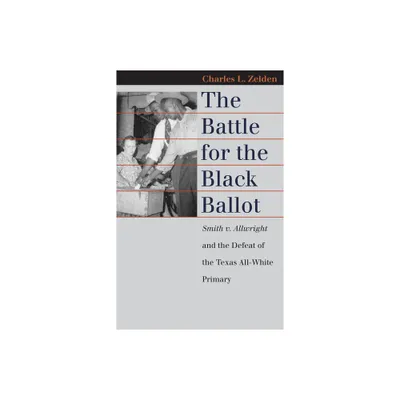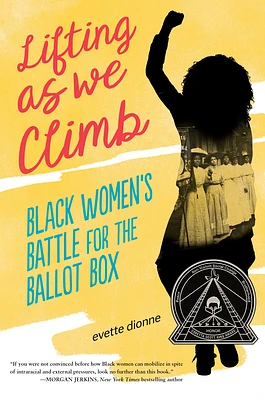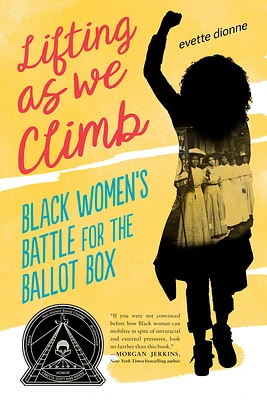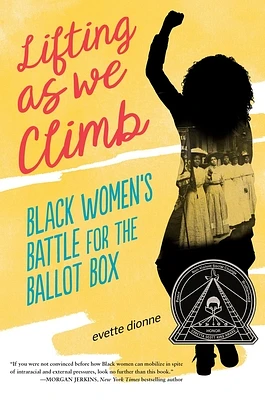Home
The Battle for the Black Ballot: Smith v. Allwright and the Defeat of the Texas All White Primary
Loading Inventory...
Barnes and Noble
The Battle for the Black Ballot: Smith v. Allwright and the Defeat of the Texas All White Primary
Current price: $69.99


Barnes and Noble
The Battle for the Black Ballot: Smith v. Allwright and the Defeat of the Texas All White Primary
Current price: $69.99
Loading Inventory...
Size: OS
*Product Information may vary - to confirm product availability, pricing, and additional information please contact Barnes and Noble
The history of voting rights in America is a checkerboard marked by dogged progress against persistent prejudice toward an expanding inclusiveness. The Supreme Court decision in Smith v. Allwright is a crucial chapter in that broader story and marked a major turning point for the modern civil rights movement. Charles Zelden's concise and thoughtful retelling of this episode reveals why.
Denied membership in the Texas Democratic Party by popular consensus, party rules, and (from 1923 to 1927) state statutes, Texas blacks were routinely turned away from voting in the Democratic primary in the first decades of the twentieth century. Given that Texas was a one-party state and that the primary effectively determined who held office, this meant the total exclusion of Texas blacks from the political process. This practice went unchecked until 1940, when Lonnie Smith, a black dentist from Houston, fought his exclusion by election judge S. E. Allwright in the 1940 Democratic Primary. Defeated in the lower courts, Smith finally found justice in the U.S. Supreme Court, which ruled 8-1 that the Democratic Party and its primary were not "private and voluntary" and, thus, were duly bound by constitutional protections governing the electoral process and the rights of all citizens.
While the initial impetus of the case may have been the wish of one man to exercise his right to vote, the real meaning of Smith's challenge to the Texas all white primary lies at the heart of the entire civil rights revolution. One of the first significant victories for the NAACP's newly formed Legal Defense Fund against Jim Crow segregation, it provided the conceptual foundation which underlay Thurgood Marshall's successful arguments in Brown v. Board of Education. It was also viewed by Marshall, looking back on a long and storied career, as one of his most important personal victories.
As Zelden shows, the Smith decision attacked the intractable heart of segregation, as it redrew the boundary between public and private action in constitutional law and laid the groundwork for many civil rights cases to come. It also redefined the Court's involvement in what had been a hands-off area of "political questions" and foreshadowed its participation in voter reapportionment cases.
A landmark case in the evolution of Southern race relations and politics and for voting rights in general, Smith also provides a telling example of how the clash between national concerns and local priorities often acts as a lightning rod for resolving controversial issues. Zelden's lucid account of the controversies and conflicts surrounding Smith should refine and reinvigorate our understanding of a crucial moment in American history.
Denied membership in the Texas Democratic Party by popular consensus, party rules, and (from 1923 to 1927) state statutes, Texas blacks were routinely turned away from voting in the Democratic primary in the first decades of the twentieth century. Given that Texas was a one-party state and that the primary effectively determined who held office, this meant the total exclusion of Texas blacks from the political process. This practice went unchecked until 1940, when Lonnie Smith, a black dentist from Houston, fought his exclusion by election judge S. E. Allwright in the 1940 Democratic Primary. Defeated in the lower courts, Smith finally found justice in the U.S. Supreme Court, which ruled 8-1 that the Democratic Party and its primary were not "private and voluntary" and, thus, were duly bound by constitutional protections governing the electoral process and the rights of all citizens.
While the initial impetus of the case may have been the wish of one man to exercise his right to vote, the real meaning of Smith's challenge to the Texas all white primary lies at the heart of the entire civil rights revolution. One of the first significant victories for the NAACP's newly formed Legal Defense Fund against Jim Crow segregation, it provided the conceptual foundation which underlay Thurgood Marshall's successful arguments in Brown v. Board of Education. It was also viewed by Marshall, looking back on a long and storied career, as one of his most important personal victories.
As Zelden shows, the Smith decision attacked the intractable heart of segregation, as it redrew the boundary between public and private action in constitutional law and laid the groundwork for many civil rights cases to come. It also redefined the Court's involvement in what had been a hands-off area of "political questions" and foreshadowed its participation in voter reapportionment cases.
A landmark case in the evolution of Southern race relations and politics and for voting rights in general, Smith also provides a telling example of how the clash between national concerns and local priorities often acts as a lightning rod for resolving controversial issues. Zelden's lucid account of the controversies and conflicts surrounding Smith should refine and reinvigorate our understanding of a crucial moment in American history.

















